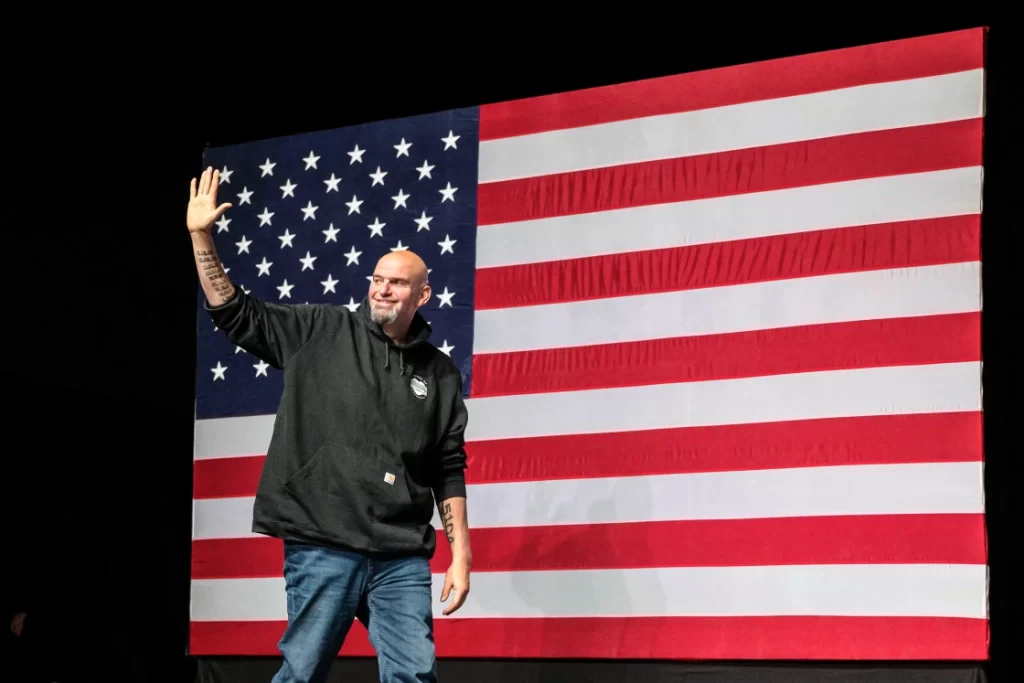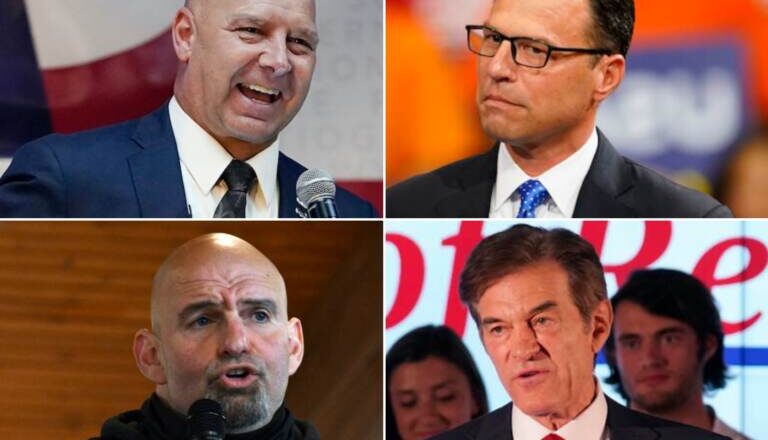Remember in the fall, when dramatic ads claimed that a candidate was “a snake-oil salesman” or the other was “a free-loading fraud”? These ads were the direct result of the PA Midterm elections where, in the fight for power in Pennsylvania, candidates launched “attack ads” to villainize each other.
The US Midterm Elections are held every four years in November. This year, they occurred on Nov. 8, 2022. This year’s elections decided Pennsylvania’s representation for many positions including the US Senate, US House, Governor, and State Legislature.
This year, most of the focus was on two races: the main PA senate race between Democrat Lt. Governor John Fetterman and Republican Dr. Mehmet Oz, and the gubernatorial election between Democrat Josh Shapiro and Republican Doug Mastriano.
Increasing political participation among youth over the past few years has played a pivotal role in the recent elections, especially this year’s, where higher turnout in young voters influenced many critical races across the country.
“Historic youth turnout has been so low that the recent increase to more than 20% has had a large impact on election results,” said Upper School history teacher Robert Moyer.
This year, younger voters heavily favored Democratic candidates. According to the Edison Research National Election Pool, only 35% voted for Republican candidates in the House of Representatives races, while 63% voted for Democratic candidates in US House races. Even in increasingly Republican states like Florida, the majority of young voters still supported Democratic candidates. These voters were key in holding back the predicted “red wave.”
The winner of the Pennsylvania Senate race was Democratic candidate John Fetterman, who will replace retiring Republican Senator Pat Toomey. A major focus of the campaign revolved around Mr. Fetterman’s tenure on the PA Board of Pardons, which he chairs as Lieutenant Governor. Under his leadership, the board has increased the number of commutations it issues. Supporters of Mr. Fetterman argue that his work reduces racial inequities in the criminal justice system, while opponents assert it shows he is “dangerously liberal on crime.”
Mr. Moyer says he is not very optimistic about Fetterman’s ability to implement his ideas in a narrowly divided Senate. He asserts that Fetterman will have to move toward the center to work with the rest of the Democratic Party in Congress.

Democratic candidate Josh Shapiro is the Governor-elect of Pennsylvania, replacing term-limited Democrat Tom Wolf. During his time in other elected offices like Attorney General and State Representative, Shapiro demonstrated his capability to make pragmatic decisions and seek compromises with his opponents.

Madeleine Dean was re-elected as the US House Representative for Pennsylvania’s Fourth Congressional District, which encompasses most of Montgomery county and part of Berks county. This race was much less competitive than the aforementioned races, as almost all election forecasts predicted it would be a “Safe Democratic” seat.
An often neglected area of politics is at the state and local levels. While they may not receive as much attention or fanfare, some argue that they hold greater influence over everyday life than the federal government.
This year, control of the PA State House flipped to the Democrats for the first time since 2010, as the Democrats won 102 races to 101 for the Republicans. However, with a razor-thin margin of one seat, two members resigning to hold high office, and a representative voted in posthumously, the operation of the legislative body remains somewhat murky.
A key player in the Democrats’ reclamation of the majority is Representative-elect Melissa Cerrato, who will represent Montgomery County’s 151st district. Cerrato narrowly defeated incumbent Republican Todd Stephens by just 58 votes.
This election, some GA students were able to participate in the electoral process by voting. Some even worked for political campaigns and organizations. For example, Logan Shallow ’23 worked for Cerrato’s campaign during the summer by reaching out to voters.
“The time I spent in the office was super interesting because I got to watch some much of the work that goes into an election happen in front of my eyes […] It’s great knowing that even a small group of teenagers, many of whom couldn’t even vote themselves, were able to have an impact on a race that they felt passionate about,” said Shallow.
Shallow advises students who are interested in politics to try to find opportunities closer to home in local and state-level government instead of being fixated on the big names on TV.
“I personally believe that, in most cases, the impact you can have in these positions is much greater than the impact you may have working for someone higher up, and the work you’ll do will likely give you a much better idea of the kind of work that goes into governance,” said Shallow.

